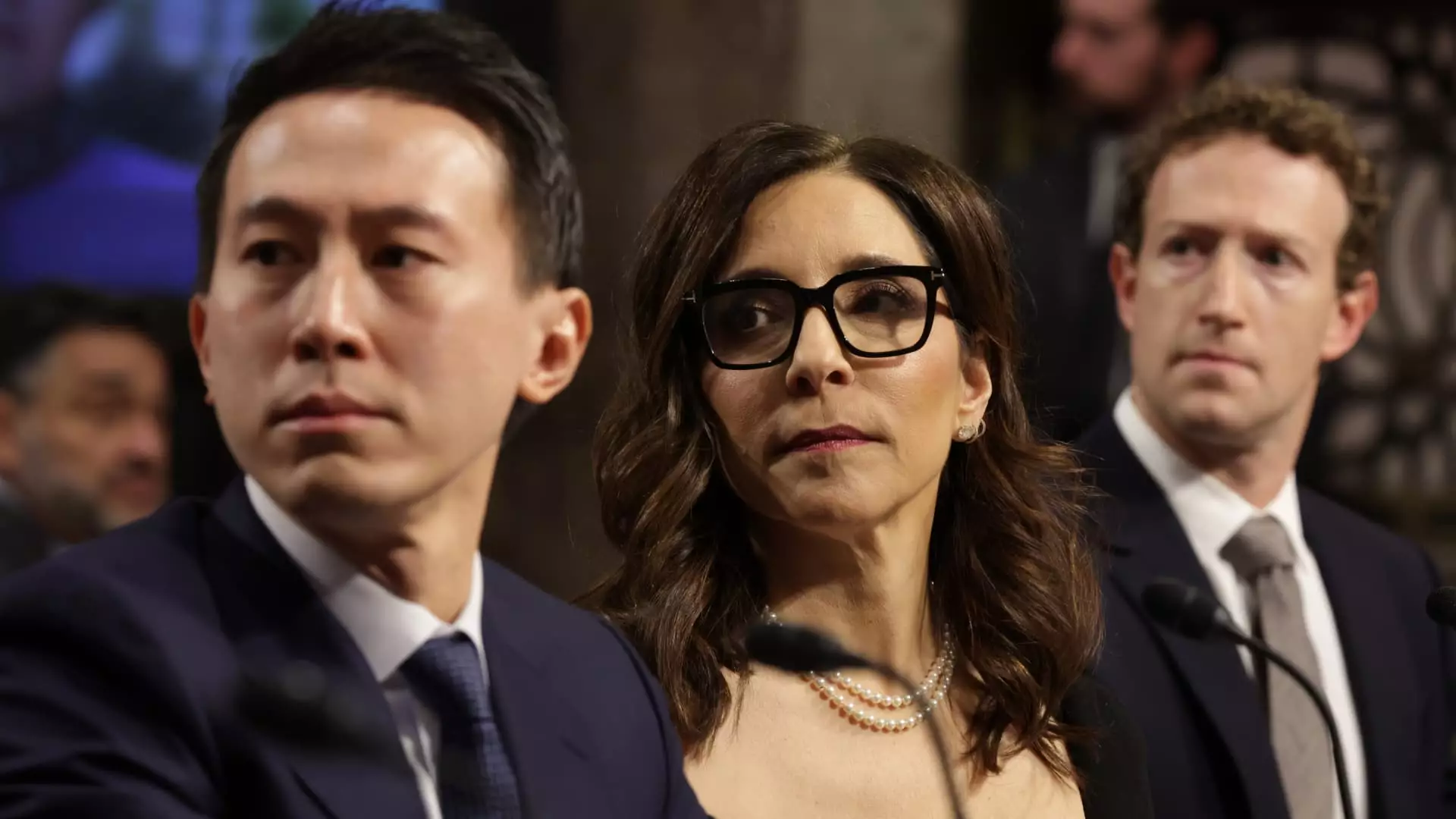The Senate Judiciary Committee held a tense and emotionally charged hearing this week, focusing on the role social media companies play in the exploitation of children. Lawmakers expressed their frustration and accused tech executives, including Mark Zuckerberg of Meta, Shou Zi Chew of TikTok, and Linda Yaccarino of X, of failing to adequately protect young users on their platforms. In an exchange that drew attention, Senator Josh Hawley compelled Mark Zuckerberg to stand up and personally apologize to parents who believed that Meta’s Facebook and Instagram apps had contributed to the death of their children. While the hearing showcased several emotional moments, it remains to be seen whether tangible regulation will follow.
Despite the heated hearing, the immediate impact of potential regulation on social media companies was minimal. Both Meta and Snap shares remained relatively flat in after-hours trading, indicating that Wall Street does not anticipate significant financial ramifications for these firms. While lawmakers from both parties expressed concern about the negative impact of social media on young people, passing legislation takes time. However, the ongoing scrutiny surrounding child safety on these platforms may continue to fuel discussions in Congress. Advocates for child safety and critics of big tech are optimistic that the Senate hearing will provide momentum behind proposed bills such as the Stop Child Sexual Abuse Material (CSAM) Act and the Kids Online Safety Act (KOSA).
During the hearing, lawmakers directed most of their attention towards Meta due to the company’s massive user base, well-documented privacy controversies, and recent legal battles. New Mexico’s attorney general filed a lawsuit against Meta, accusing the company of inadequate protection for young users against sexual predators. If these lawsuits result in penalties, they could significantly impact the company’s financial standing. Despite Meta’s recent challenges, the company’s business has shown signs of rebounding after a challenging 2022, as its advertising sector gains support from undisclosed “Chinese retailers,” according to the company’s finance chief.
Lawmakers also raised concerns about the involvement of Chinese companies in the social media landscape. Advertising experts and analysts speculated that rising startups like Temu and Shein, rumored to benefit from special trade rules due to their Chinese connections, may contribute to Meta’s advertising recovery. Chinese firms have faced increased scrutiny, and during the hearing, Senator Tom Cotton directed questions about Chinese ownership to TikTok CEO Shou Zi Chew. In response, Chew clarified that he is Singaporean, not affiliated with the Chinese Communist Party.
While concerns over online safety for children united lawmakers, passing meaningful legislation remains a challenge. Congress has grilled tech CEOs on issues such as antitrust and data privacy in the past, but implementing broad regulatory changes has proven difficult. Senator Thom Tillis warned the tech executives of the consequences of continued failure to address child safety concerns. He suggested that Congress could take regulatory action severe enough to threaten the existence of these companies. However, Tillis also voiced concerns that excessive regulation could inadvertently benefit foreign companies, as predators may resort to other platforms if strong regulation forces popular social media companies out of business.
Despite past challenges, child safety and anti-big tech advocates believe that the Senate hearing could be a turning point in holding social media companies accountable. The testimonies and emotional stories from parents affected by online predators may spur lawmakers to prioritize the passage of legislation such as the Stop CSAM Act and KOSA. The hearing shed light on the urgent need for stronger measures to safeguard young users against exploitation. The outcome of the hearing, combined with ongoing public pressure and advocacy efforts, may prompt lawmakers to take concrete action to protect children online.
The recent Senate hearing served as a platform for concerned lawmakers to express their frustration with social media companies’ failure to protect children from exploitation. While the hearing highlighted raw emotions surrounding the issue, the immediate impact on share prices suggests that significant regulation may not be imminent. However, the focus on child safety and calls for stronger regulation indicate a growing demand for increased accountability from social media giants. The hearing could be a crucial step towards enacting legislation that better safeguards young users and protects them from online predators. Only time will tell if Congress can effectively address this critical issue and successfully regulate the social media landscape.


Leave a Reply